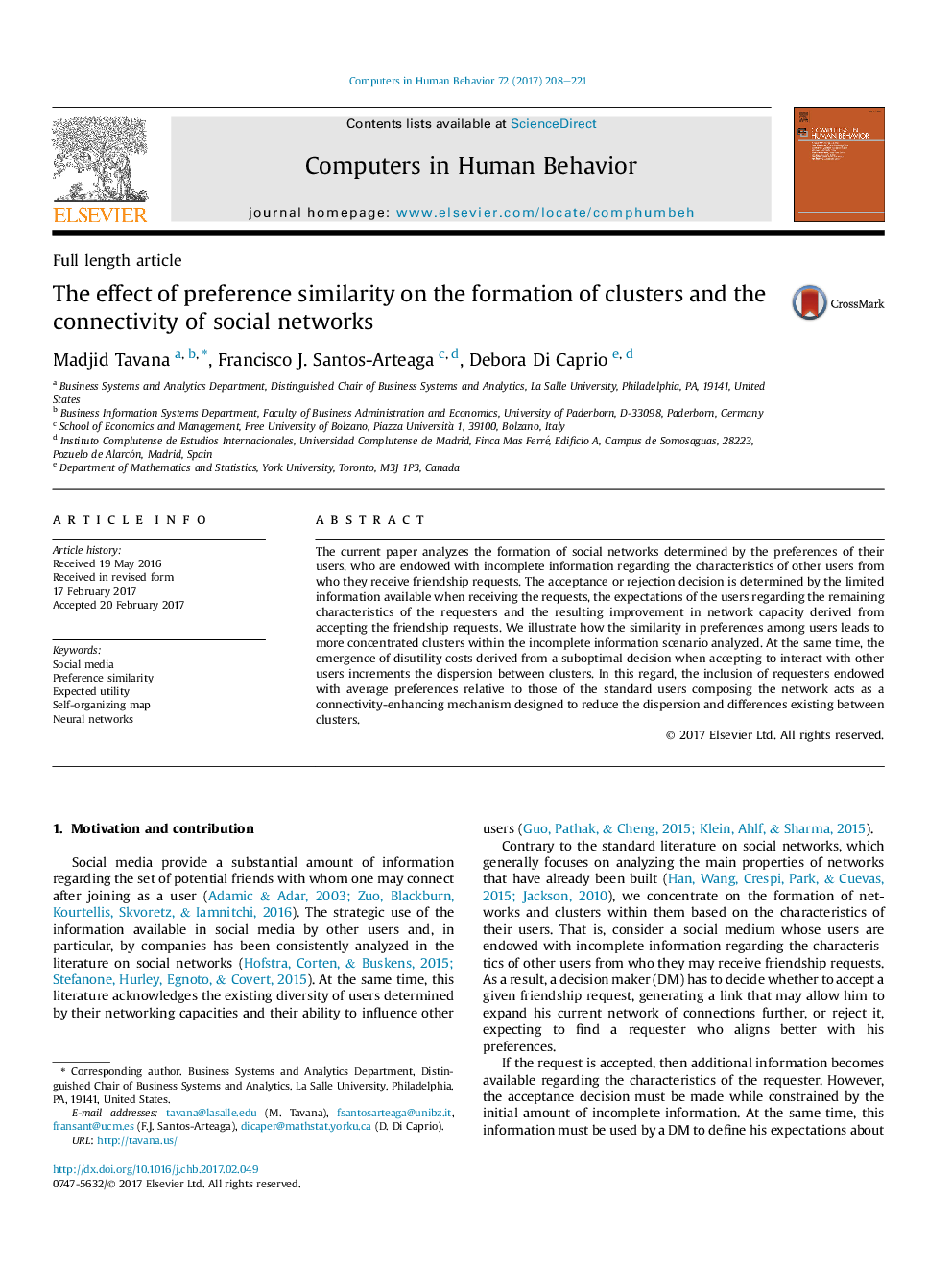ترجمه فارسی عنوان مقاله
تأثیر شباهت های ترجیحی به شکل گیری خوشه ها و اتصال شبکه های اجتماعی
عنوان انگلیسی
The effect of preference similarity on the formation of clusters and the connectivity of social networks
| کد مقاله | سال انتشار | تعداد صفحات مقاله انگلیسی |
|---|---|---|
| 140396 | 2017 | 14 صفحه PDF |
منبع

Publisher : Elsevier - Science Direct (الزویر - ساینس دایرکت)
Journal : Computers in Human Behavior, Volume 72, July 2017, Pages 208-221
ترجمه کلمات کلیدی
رسانه های اجتماعی، شباهت ترجیحی، ابزار مورد انتظار، نقشه خودمراقبتی، شبکه های عصبی،
کلمات کلیدی انگلیسی
Social media; Preference similarity; Expected utility; Self-organizing map; Neural networks;
ترجمه چکیده
در مقاله حاضر، شکل گیری شبکه های اجتماعی تعیین شده توسط ترجیحات کاربران خود، که با اطلاعات ناقص در خصوص ویژگی های دیگر کاربران از کسانی که درخواست های دوستی دریافت می کنند، تحلیل می شود. تصمیم پذیرش یا رد تصمیم گیری توسط اطلاعات محدود در دسترس در هنگام دریافت درخواست، انتظارات از کاربران در مورد ویژگی های باقی مانده از درخواست کنندگان و بهبود یافته در ظرفیت شبکه حاصل از پذیرش درخواست دوستی تعیین می شود. ما نشان میدهیم که شباهت در ترجیحات میان کاربران، به خوشههای متمرکزتر در سناریو اطلاعات ناقص تجزیه و تحلیل منجر میشود. در عین حال، ظهور هزینه های غیرقابل انکار حاصل از تصمیم گیری غیرمتعارف هنگام پذیرش ارتباط با سایر کاربران، پراکندگی بین خوشه ها را افزایش می دهد. در این راستا، شمول درخواست کنندگان با تنظیمات متوسط نسبت به کاربران استاندارد که شبکه را تشکیل می دهند، عمل می کند به عنوان یک مکانیسم تقویت اتصال، طراحی شده برای کاهش پراکندگی و تفاوت بین خوشه ها.

